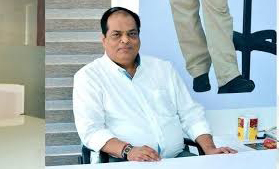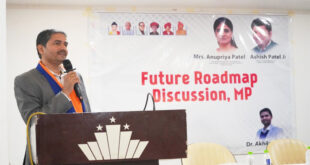“Do we want a win in 2025 Bihar elections or could victory be ours in 2024? With people’s support, we won’t have to wait till 2025. The matter can be settled in the upcoming elections in November itself.”
These remarks directed towards many stalwarts of Bihar are from none other than Prashant Kishor, who announced the formation of his new political party Jan Suraj while addressing the crowd on October 2. The revolutionary approach that Prashant has adopted not only infused a new energy among lakhs of workers associated with the Jan Suraj Party but also helped him in building a connection between the progressive youth, women and men of Bihar with a transformative ideology. However, if you look at the other side of the coin, it is evident that PK’s aggressive stance of reshaping Bihar has raised many questions. The most common among the many speculations is whether PK is set to follow Arvind Kejriwal’s path.
After his Padyatra in Bihar for nearly 2 years, PK, a renowned political strategist has decided to finally enter the electoral battle. During his visits, he has highlighted migration, poverty, and illiteracy as the main issues along with strongly condemning nepotism and casteism that have shaped Bihar’s political landscape for generations. However, these long-standing political issues have deep roots in Indian politics, particularly in Bihar. Recognizing the pressing need for a change in the status quo, PK has raised his voice about the liquor ban in Bihar and advocated for revoking it to utilize the lost revenue and improve Bihar’s status of education. Additionally, he promoted ‘surveys’ and ‘smart meters’ as significant issues in the election. The turnout at the party’s launch event has sent a strong message: when the architect of numerous political careers enters the arena, he will spare no effort in shaping the narrative among his audience.
His approach from adopting candidate selection processes modeled on the American political campaigns, to challenging Nitish’s tenure, solidifies his intent to pursue those in power and reshape Bihar’s political domain. The situation is very similar to Arvind Kejriwal’s rise in Delhi following Anna Hazare’s movement of 2011.
Considering their early days, both Kejriwal and PK have ridden almost on the same political horse. One left his job at the UN and the other quit the Income Tax Department. Going deeper, both Kejriwal and PK had mentors in their initial days, where Kejriwal had looked up to Anna Hazare, PK considered Nitish as his political ‘guru’. Similarly, as Kejriwal paved his own path and distanced himself from Hazare, PK also established the Political Action Committee in 2013 and Citizens for Accountable Governance in 2014 and conveyed his intention to fight a long battle, not only against Nitish, but the entire political system and preceding successors. This is exactly how Kejriwal had worked to give a broader shape to the people’s movement under the Lokpal Bill to shake the power against corruption and ascend to the throne of Delhi.
PK, who served as an election strategist for more than half a dozen political parties including BJP and JDU, has also worked for AAP. One should not forget that just as Anna’s movement gave birth to many leaders, PK’s political campaigns have similarly sown the seeds of many ambitious politicians. Along with an addition of over 100 IAS and IPS officers to Jan Suraj Party, PK’s team includes many former MPs and prominent leaders of opposition parties. There is a lot of hope that just as Kejriwal had entered the political battlefield with a dream team of experts and surpassed all his opposition, the same way PK’s team also seems to be equipped with individuals promoting with modern ideologies and commitment to improving the fallacies of the system.
The practices of a party always have foundations rooted in political ideologies shared by the party members. Usually, some individuals lead, remind, and redirect the members towards the aspirations and ideologies of a given party and uphold the unity intact. Initially, it was Kejriwal and his team who shaped their successful political journey through a headstrong and conscientious approach. They were able to distinguish between right and wrong. Over time, however, the party seems to have transformed into one that follows its leader without resistancequestion. As of now, it appears that only those who accept Kejriwal’s words as absolute remain with AAP. These allegations have emerged from some former members of his own party itself. PK also has a team of some of the most successful members from the administration. The question is, will the Jan Suraj Party fight the same battles? Can a party with non-political roots be able to create a political legacy?
Just as the people of Delhi created history in India by giving AAP67 seats out of 70, a similar wave seems to be created by Prashant Kishor in Bihar. However, one can hope that PK and his team will avoid the mistakes made by Kejriwal and lead Bihar to a brighter future.
 Odisha Samachar Odisha Breaking News , Odisha Current News , Odisha News
Odisha Samachar Odisha Breaking News , Odisha Current News , Odisha News




